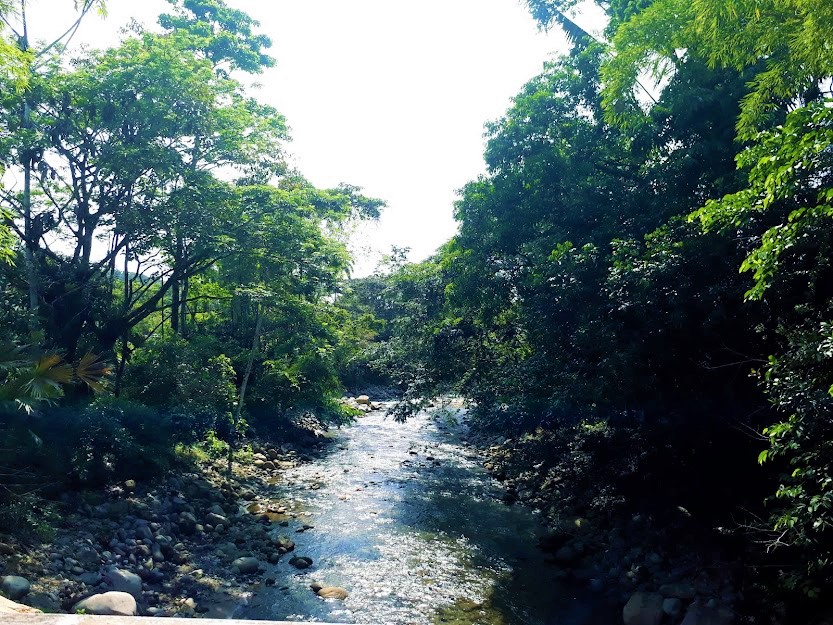Constitutional Court approves a referendum against mining in Quito
February 7th, 2022
The Constitutional Court issued opinion number 7-21-CP and cumulative/22 of January 12, 2022, by which it resolves the request for 2 referendums composed of 4 questions on the exploitation of metal mining in the 4 regimes: artisanal, small, medium and large scale, in the parishes of Nono, Calacalí, Nanegal, Nanegalito, Gualea and Pacto, confirming that “the questions posed do not result in the restriction of constitutional rights or guarantees and do not propose a constitutional reform“.
The first request for a referendum was charged to the constitutional judge Carmen Corral Ponce and the second request was charged to the constitutional judge Teresa Nuques Martínez. However, since the two requests were joined, the two cases were heard by constitutional judge Carmen Corral Ponce. Her draft opinion did not reach the necessary votes for its approval in the plenary of the Court. Therefore, the case was drawn again, and the analysis of the case was charged to the constitutional judge Agustín Grijalva Jiménez.
Questions submitted for opinion:
The request to the Court is the approval of the following questions to the people of Quito:
“Do you agree with the prohibition of the exploitation of artisanal scale metal mining [, small, medium and large scale] within the Area of Ecological, Cultural, and Sustainable Productive Development Importance made up of the territories of the parishes of Nono, Calacalí, Nanegal, Nanegalito, Gualea and Pacto, which make up the Commonwealth of Chocó Andino?”
The recitals
- In conclusion of its analysis of the recitals from the requests, the Court indicates the following:
“In this way, the recitals establish, in a simple and understandable way, a description that has a causal relationship with what is intended to be consulted. To this end, official figures, technical data, concepts and information are also included, allowing voters to understand the scope, motive and purpose pursued by the proposed consultation. “
- With regard to the normative recitals, it states:
“[…] it is not observed that those considered normative are disjointed or inconsistent for the purposes of the consultation raised.”
- In view of the recitals of factual, spatial, demographic, and technical context, the Court indicated the following:
“[…] it is evident that the purpose of these is to provide specific information and “verifiable” documentary references about the geographical characteristics and ecological importance of the territories that make up the Mancommunity of the Andean Chocó, as well as their mining capacity or potential, which denotes their direct relationship with the purposes of the referendum.”
- In regards to the recitals on the effects and repercussions of the consultation:
“[…] these establish in an understandable way the purposes sought by the referendum and the specific measures to be taken by the State before a possible approval of the referendum.”
- The Court confirmed what must happen if the referendum is approved:
“[…] if the referendum is approved, there is a concrete probability that the objective pursued by the referendum will be achieved, since it is clearly established that the Cantonal Council of the DMQ (Quito) must include in the Territorial Planning Plan (PDOT) and Land Use and Management Plan (PUGS) the prohibition of mining exploitation in the territories that make up the mancommunity, as well as, that the Ministry of Energy and Non-Renewable Natural Resources, and its affiliated entities refrain from granting and registering new mining rights in the parishes that make up the mancommunity, once these have been extinguished by the expiration of the term, reduction, renunciation or expiration of the concession and permits.”
- With regard to the material aspects of the recitals, the Court referred mainly to democratic consistency[1]:
“[…] the proponents have provided sufficient reasons for this Court to consider justified the exception, in the present case, to the aforementioned criterion of democratic congruence. Consequently, the Court concludes that the recitals proposed in these consultations exceed material control. “
Validation of questions
- As to the formulation of a single matter for each question and the possibility of accepting or denying several topics individually in the same consultation, the Court affirms:
“[…] the four questions of the two questionnaires formulate in a concordant and independent way a single question for each of them: “the prohibition of the exploitation of metallic mining by scales” and for this purpose the geographical space in which such a restriction is intended is identified: […] the Macommunity of Chocó Andino”.
Effects of the popular consultation on time
- The Court also referred to the application of the referendum’s results over time:
“[…] the measures to be adopted if approved in the referendum will take place in the future and respecting the institutional competences established in the Constitution and the law. Thus, there would be no impact on the constitutional right to legal certainty, since if the decision would be favorable, previous legal situations would not be modified. “
The Court ordered that a statement on this matter is included in the questionnaire indicating what has been said.
- Finally, the Court ordered that the Municipality of Quito provide a map of the parishes of Nono, Calacalí, Nanegal, Nanegalito, Gualea and Pacto, which make up the Mancommunity of Chocó Andino, in order to ensure that the voter can clearly know the referential technical delimitation of the area.
Dissenting Vote
- In a dissenting vote, constitutional judges Carmen Corral Ponce and Hernán Salgado Pesantes affirm that the referendum proposals do not comply with the provisions of the Constitution and the Law. Among other considerations, the dissenting vote states the following:
“It should be noted that the constitutional protection of ecosystems is not a matter that is incompatible with the use of non-renewable natural resources, since the Ecuadorian constitutional paradigm proposes a fair measure between the framework of protection of the rights of nature and the promotion of productive activities by the State, as an ideal means to achieve an effective promotion of rights (v.gr., education, health, housing, employment), as well as the achievement of the objectives of the development regime. “
[1] The Court cites the following aspects among others:
- Environmental Impact Study (EIA) and the Environmental Management Plan for the advanced exploration phase of the INGAPI Pact-Mining Area Project, located in the parishes of Pacto and Gualea operated by the company ENAMI E.P, identified:
- […] abundant mammals such as rats, raposas, the white capuchin monkey, the three-toed sloth, the red deer, the peccary with necklace or pig of the mountain, anteater […] at least 122 species of birds; a record of 17 species of amphibians and reptiles”, etc.
- “[…] that the Municipality of Quito has local regulations for the protection of biodiversity in these localities” and the declaration of protected natural areas by the Municipal Council of Quito.
- “[…] sustainable productive activities that mean income and direct productive development for this territory, indirectly for the Metropolitan District of Quito and even for the province of Pichincha and the country.”




Leave a comment